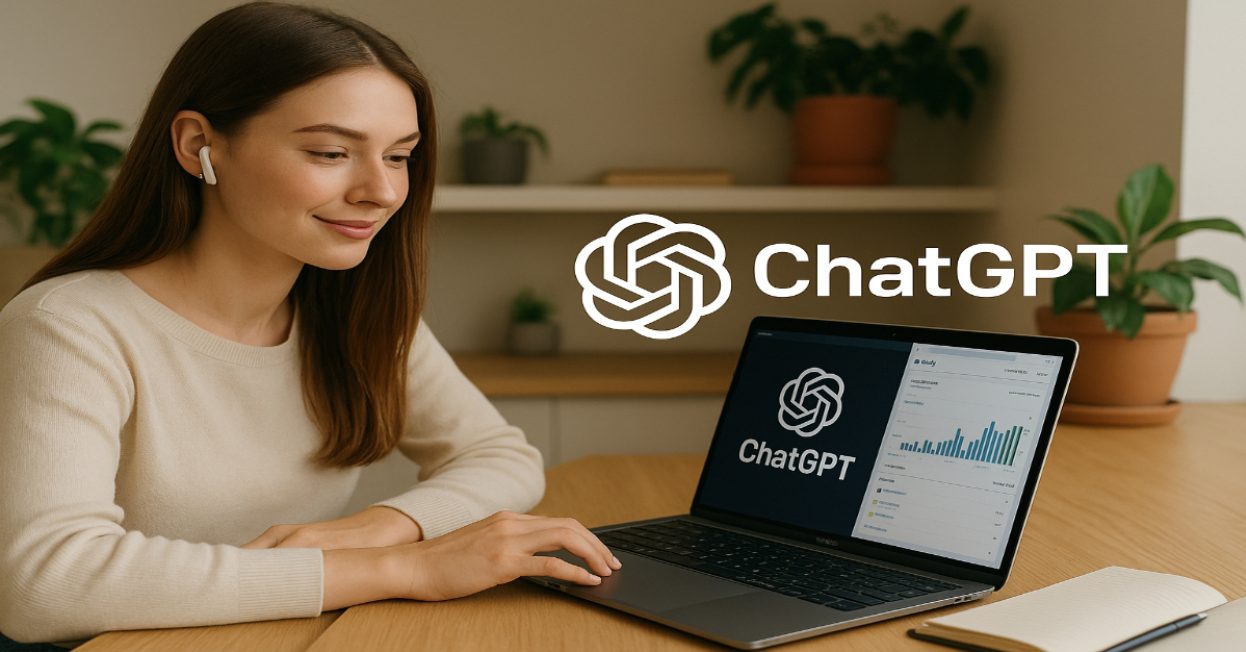
OpenAI’s ChatGPT Is My New CFO – How I Saved $150K by Using AI for Finance
How Leveraging OpenAI’s ChatGPT as My Financial Advisor Saved My Business Over $150K Without Hiring a CFO.
As a business owner, financial management was always my least favourite task.
Monthly reviews, budgeting, forecasting, handling unexpected expenses-it consumed more time than I liked, often leading to stress and missed opportunities.
I considered hiring a CFO, but for a growing small business, a full-time financial executive wasn’t financially viable.
Then, I discovered OpenAI’s ChatGPT, a powerful AI tool that became my virtual CFO, and the results were remarkable: I saved $150,000 within a year by optimising processes, reducing expenses, and proactively managing financial risks.
Here’s exactly how I integrated AI-driven financial management into my business routine, the tangible results I achieved, and why more businesses are quietly turning to Artificial Intelligence (AI) tools like ChatGPT for their finance needs.
Why Traditional Financial Management Was Costing Me Time and Money
Before I turned to ChatGPT, my finance processes were slow, reactive, and manual.
Bookkeeping was tedious, forecasting felt like guesswork, and budget reviews became an afterthought rather than proactive strategy sessions. The cost of inefficiency was substantial-not just financially but in lost opportunities and stress.
I considered hiring a CFO or external financial advisors, but the costs were high-often reaching six figures annually. Moreover, I needed immediate and flexible financial insights tailored specifically for a fast-changing small business environment.
ChatGPT provided exactly that: instant access to strategic financial insights, clear financial planning, and optimisation tools tailored specifically to my business needs.
ChatGPT Streamlined My Financial Planning and Analysis
The first step I took was to use ChatGPT to create a clear financial roadmap. I prompted:
“Act as my virtual CFO. Analyse my small business’s last 12 months of expenses, income, and cash flow. Identify three major areas of unnecessary spending and suggest specific cost-cutting strategies.”
Within seconds, ChatGPT provided an in-depth, structured analysis highlighting several key financial inefficiencies:
- Subscription software costs: Duplicate tools costing around $2,500 monthly
- Inefficient inventory management practices leading to holding costs exceeding $5,000 per quarter
- High-interest rates on a small business credit line, amounting to $15,000 annually
Armed with this clear, concise analysis, I swiftly made strategic cuts and consolidations, immediately saving significant monthly expenses.
Proactive Budgeting and Forecasting with ChatGPT
I next leveraged ChatGPT to help plan and forecast business budgets more accurately. My prompt was straightforward:
“Create a realistic and proactive quarterly budget forecast based on last year’s financial data, highlighting areas for increased investment and potential financial risks.”
ChatGPT generated a comprehensive financial forecast complete with recommended adjustments such as:
- Increasing digital marketing spend by 15% to capitalise on a higher conversion rate trend
- Allocating extra resources to emerging products seeing steady growth, based on last year’s successful launches
- Setting aside contingency funds for predicted seasonal sales dips identified from previous years
With ChatGPT, budgeting transformed from guesswork into a strategic, data-driven activity.
Automating Financial Reporting and Admin
One of my biggest pain points was the repetitive nature of financial reporting and administration. Here, ChatGPT offered practical, immediate solutions:
- Prompting ChatGPT: “Write clear, professional financial reports summarising monthly business performance suitable for board meetings.”
- Using ChatGPT to draft polite yet effective payment reminder emails, resulting in faster invoice settlements.
- Automating and templating common administrative tasks such as expense categorisation, invoice creation, and follow-up messages.
By adopting these AI-driven administrative routines, I significantly reduced administrative overheads and manual workloads.
How ChatGPT Improved My Cash Flow and Financial Stability
Within just three months of implementing ChatGPT’s financial recommendations, I saw notable results:
- Cash flow improved significantly through better debt recovery and cost management.
- Operational costs dropped, most notably through identifying and removing redundant software subscriptions and optimising inventory management.
- Savings on interest payments were realised by refinancing loans based on ChatGPT’s detailed analysis and suggestions.
In total, these AI-driven financial strategies resulted in savings of approximately $150,000 in just one year.
Storing and Replicating Financial Workflows with Chatronix
To maximise efficiency, I stored all my proven financial workflows, reports, and AI prompts within a dedicated productivity platform, Chatronix. This allowed me to easily replicate and adjust my successful financial processes whenever needed:
- Organised my most effective ChatGPT financial prompts for budgeting, reporting, and compliance.
- Facilitated easy replication and improvement of financial analysis routines.
- Provided a single, streamlined system accessible to my team, ensuring consistency and saving additional time.
To learn more about building repeatable financial workflows powered by AI, you can explore Chatronix.
Ensuring Financial Compliance and Risk Management with AI
Managing financial compliance and risk was another critical yet overwhelming area. Using ChatGPT, I was able to ensure compliance proactively:
- Prompt: “Summarise current financial compliance regulations relevant to my small business, and outline necessary steps to ensure compliance.”
- AI-generated risk assessments highlighted potential compliance issues early, allowing for proactive remediation.
This prevented potentially costly regulatory breaches, saving both time and substantial financial penalties.
Table: AI-Driven Financial Management Results
| Financial Area | Before ChatGPT | After ChatGPT | Annual Savings |
| Software Subscriptions | $30,000/year | $5,000/year | $25,000 |
| Inventory Costs | $20,000/year | $5,000/year | $15,000 |
| Interest Payments | $25,000/year | $15,000/year | $10,000 |
| Admin & Reporting Time | 25 hours/month | 5 hours/month | Time & resources |
| Compliance & Risk | Reactive & high-risk | Proactive & minimal risk | Risk prevention |
| Total Annual Savings | – | – | Approx. $150,000 |
The Future of Small Business Financial Management with AI
AI-powered financial management tools like ChatGPT represent more than a trend-they offer practical, affordable ways for businesses to grow sustainably and remain competitive in today’s rapidly changing economic landscape.
By leveraging artificial intelligence effectively, small businesses can make smarter financial decisions, streamline operations, and significantly reduce unnecessary costs and risks.
In my experience, embracing AI has not replaced human insight but has empowered it-freeing time and resources to focus on strategic growth, innovation, and meaningful business development.
If your business is ready to leverage AI-driven financial management, explore tools like Chatronix to optimize your financial workflows, streamline processes, and boost your profitability.



 Bitcoin
Bitcoin  Ethereum
Ethereum  Tether
Tether  XRP
XRP  USDC
USDC  Solana
Solana  TRON
TRON  Lido Staked Ether
Lido Staked Ether  Cardano
Cardano  Avalanche
Avalanche  Toncoin
Toncoin